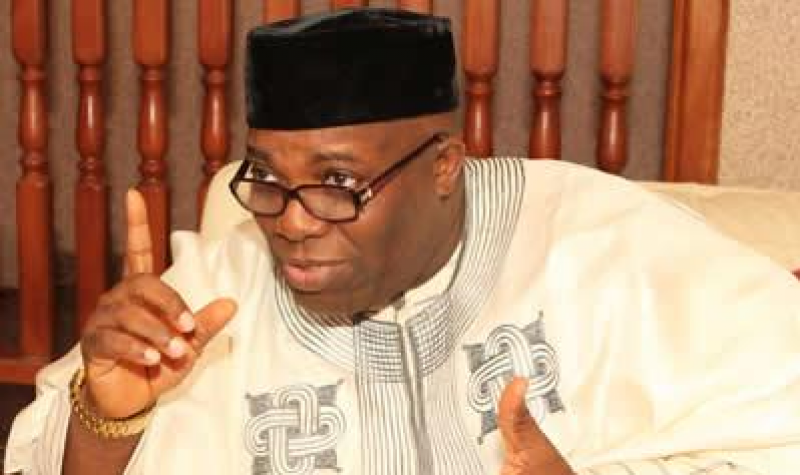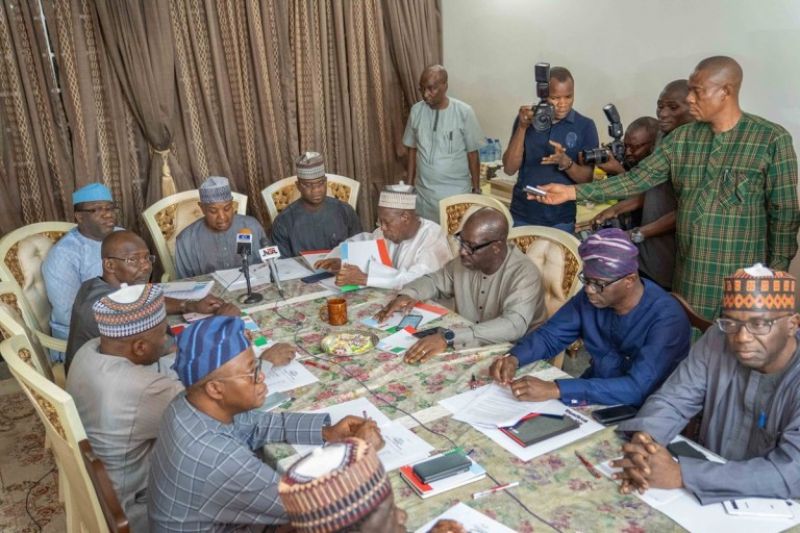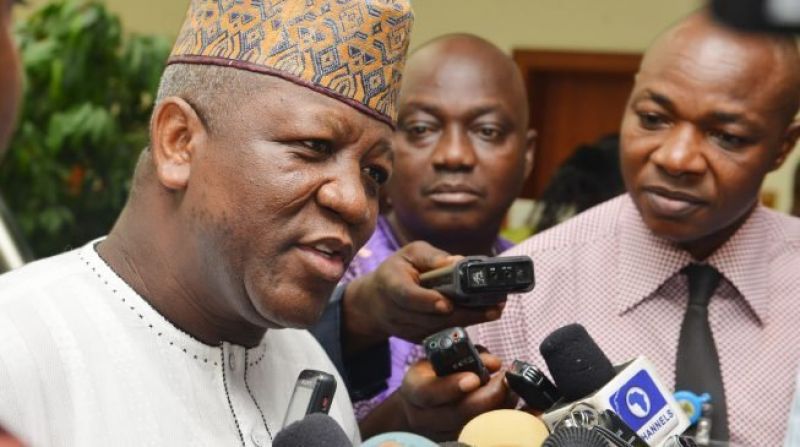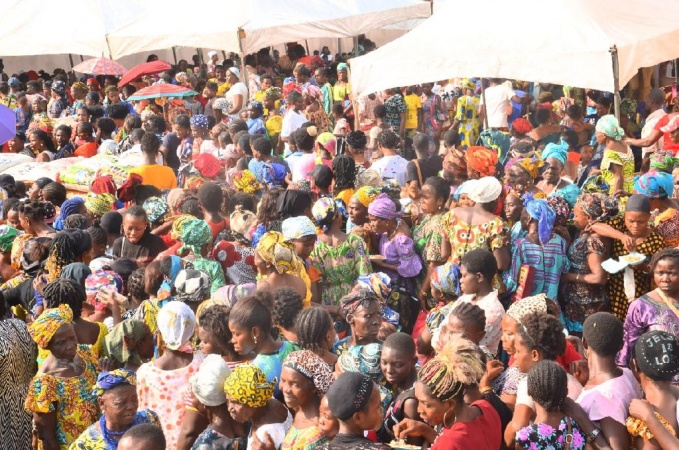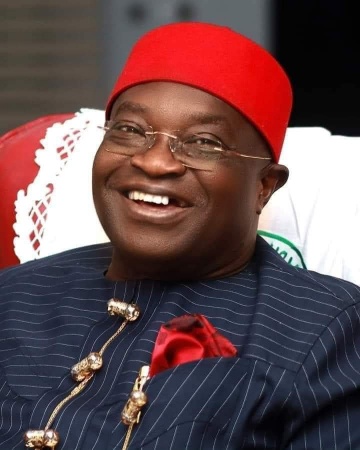A Case for independent candidates
Posted by Factnews | 7 years ago | 2,531 times
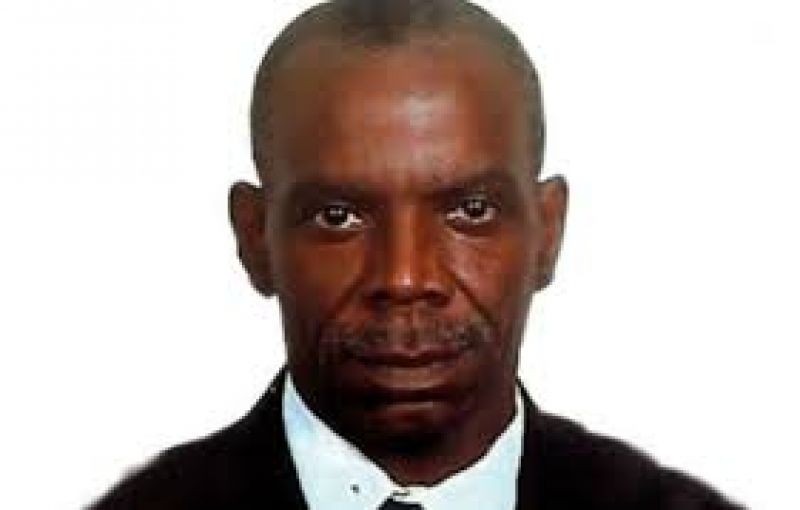
Lekan Sote
By Lekan Sote
Erstwhile delegates to the 2014 National Conference convened by former President Goodluck Jonathan are planning to form a pressure group to persuade the Muhammadu Buhari administration and the All Progressives Congress to consider their recommendations.
Many people, especially in the entire sweep of southern Nigeria, the minorities and the marginalised of northern Nigeria, as well as those seeking to be politically correct ahead of 2019 Presidential election, want Nigeria to be restructured.
They advocate, inter alia, fiscal federalism; autonomy for local governments; stronger state governments; regionalism, confederacy; revenue derivation; state police; migrating minimum wage from the Exclusive List to the Residual List reserved for states; and fielding of independent candidates for elections.
The House of Representatives’ Special Ad Hoc Committee on Review of the 1999 Constitution, headed by Deputy House Speaker, Lasun Yusuf, will be suggesting that the new constitution that is expected to be passed in 2018 should provide for independent candidates.
This has gone beyond flying a kite; the Constitution and Electoral Reform Committee, led by former Senate President Ken Nnamani, has already suggested the participation of independent candidates in future elections in Nigeria.
Independent candidates may provide a way out of the current dilemma whereby political party leaders wantonly impose unqualified electoral candidates from whom they can extract grovelling fealty and unwholesome gravy.
Nigerian political party leaders have almost assumed the same level of pre-eminence that placed apparatchiks of the Communist Party of the Soviet Union above public officials – their parties are nearly superior to the state in the same way that the CPSU was superior to the Soviet state. The Secretary General of the CPSU automatically became the Soviet leader.
The hope of the initiative to allow independent candidates is to widen candidacy in the political space and save the Nigerian electorate from the tyranny of political party leaders who impose candidates that do not live up to expectation on the people.
Section 65(2)(b) of the Nigerian Constitution provides that “A person shall be qualified for election… (only) if he is a member of a political party and is sponsored by that party.” This locks the fate of would-be candidates, and the choices of the electorate, to the whims of political party grandees.
Despite the provisions of Section 31(2) of the Electoral Act, which provide that “A list or information submitted by each candidate shall be accompanied by an affidavit sworn to by the candidate at the High Court of a state, indicating that he has fulfilled all constitutional requirements for election into that office, “ political parties brazenly field unqualified candidates.
The Chairman of the Independent National Electoral Commission, Prof Mahmud Yakubu, recently lamented that political parties often present ex-convicts and people with forged certificates as candidates for elections.
To be sure, Section 66(1)(d) provides that “No person shall be qualified for election to the Senate or the House of Representatives if… within a period of less than 10 years before the date of an election to the legislative house, he has been convicted and sentenced for an offence involving dishonesty, or he has been found guilty of a contravention of the Code of Conduct.”
Section 66(1)(h) provides that “No person shall be qualified for election to the Senate or the House of Representatives if… he has presented a forged certificate to the Independent National Electoral Commission.” Yet, Salisu Buhari presented fake University of Toronto certificates for elections and went on to become Speaker of the House of Representatives.
Buhari also breached Section 65(1)(b) of the Constitution, which provides that “A person shall be qualified for election into the House of Representatives… (only) if… he has attained the age of 30 years.” He was less than 30 years when he was elected to the House.
A political party is a body of persons united in favour of political or other causes. It could also be a group of people organised for the purpose of directing the policies or actions of the government of a nation.
You are spot on if your guess is that party whips, like team managers, are expected to compel political party members in legislative houses to toe party lines, embrace party policies and practices, attend and vote according to the desires of party leaders.
While a party line could instill discipline, especially if a political party has explicit ideological leaning, it could also stifle initiative. But there is a ditch on all the sides of the road: A legislature with too many Independents could also lead to a cacophony.
It could be worse in the executive arm. Imagine the tenuous relationship between former President Olusegun Obasanjo of the Peoples Democratic Party and his deputy, Atiku Abubakar, who, while still in office, defected to the Action Congress of Nigeria.
Senator Ben Murray-Bruce, who wishes to avoid political party diktat, insists that he will vote across party lines. He declared that he is interested in the success of President Muhammadu Buhari. He wants the hierarchy of Nigeria’s political parties to leave elected legislators to their conscience. A go-between should retreat after introducing a couple to each other.
If political party members elected to either the legislative or the executive branch of government can cross the carpet to the other side of the political divide without losing their seats, independents should be able to contest electoral offices. The Punch columnist, Abimbola Adelakun, has observed, albeit in a different context, that nothing distinguishes Nigerian political progressives from conservatives, anyway.
Section 2 of Article 1 of the American Constitution provides that “No person shall be a representative, who shall not have attained the age of 25 years… and has been seven years a citizen of the United States, and who shall not, when elected, be an inhabitant of that state in which he should be chosen.”
In other words, all you really need to contest an electoral office is to be of a majority age, a citizen, and show evidence of residency in the community where you choose to contest. To be compelled to join, or be presented by, a political party for an election is a violation of Section 38 of the Nigerian Constitution which guarantees freedom of thought, conscience and religion.
Diane Shima Rwigara is running for President in Rwanda as an independent candidate and she is distancing herself from the Rwandan Patriotic Front, which was once bankrolled by her late father, who she believed was assassinated by agents of the present government.
Also, political centrist, Emmanuel Macron, who won the French presidential election a few days ago, ran as an independent candidate on the platform of a movement of ideological leftists and rightists, formed only last year. He defeated Marine Le Pen, whose father, Jean-Marie Le Pen, co-founded the ultra-conservative National Front.
Those who wonder how indigent, but brilliant independent candidates, can finance usually expensive electioneering should wonder no more. A political action committee, which may be financed by an issue-oriented organisation, or even a business, with a political or economic interest, may be formed to raise, and contribute, money for such candidates.
And those who know can tell you that political parties or political movements are formed around charismatic politicians, who can provide viable alternative viewpoints to counter the fixated positions of jaded political party grandees. An independent candidate can always provide a breath of fresh air.
Readers Comments
comment(s)
No comments yet. Be the first to post comment.

